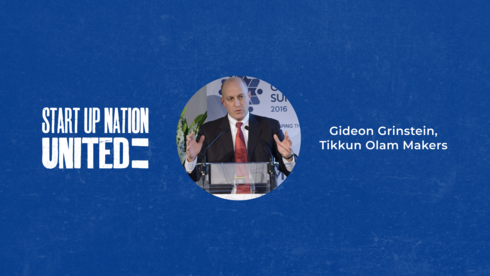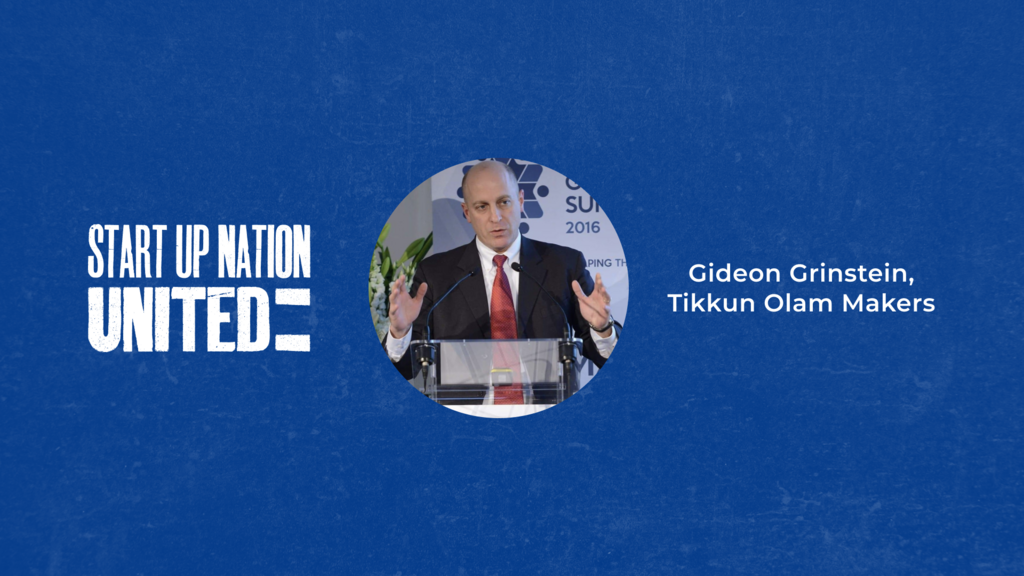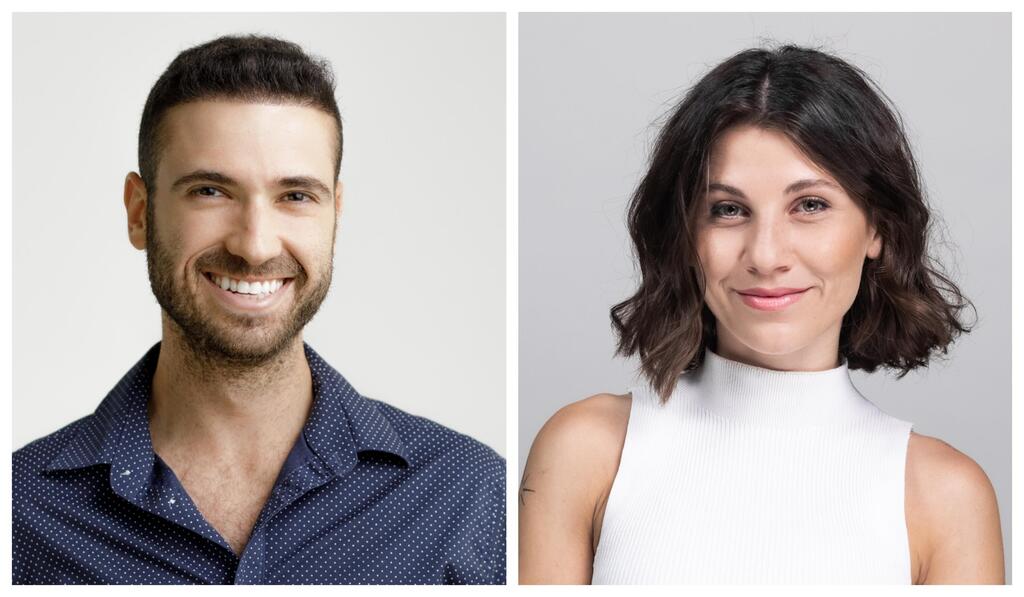
Startup Nation United
Tikkun Olam Makers: Building solutions and bridges for our future
Gidi Grinstein and his team are deploying cutting-edge methodologies to create and distribute solutions for those wounded and with disabilities, all while maintaining a sense of hope for peace.
Gidi (Gideon) Grinstein has been working for the peace and security of Israel his whole life.
Right after his service in the IDF, he went on to work on the peace process and eventually served as a secretary of the Israeli delegation for the negotiations with the PLO, including at the Camp David summit with Clinton, Barak, and Arafat in July 2000. After that episode and after graduating from the Kennedy School of Government, he launched REUT, a think tank dealing with issues of national security and economic development. In 2014, he also founded Tikkun Olam Makers (TOM) a nonprofit venture that focuses on innovation around the needs of those at the bottom tier of the economic ladder. With the ongoing war, Gidi and TOM have been playing an extraordinary role in aiding the most vulnerable displaced populations.
Gidi and TOM’s story is part of Startup Nation United, a series showcasing how individuals and organizations in the tech industry have united under a common vision to do their part during the ongoing war. The podcast is produced and moderated by Michael Matias and Yaffa Abadi, in collaboration with CTech, as a spin-off of the popular podcast series “20 Minutes Leaders”, also published in collaboration with CTech.
TOM’s process includes crowdsourcing engineering and design talents from around the world toward creating a portfolio of radically affordable solutions for the needs of people from vulnerable populations. All solutions are open source, free, and deposited online to make them downloadable and easily accessible. One of TOM’s primary distribution methods is using the excess capacity of 3D printers for manufacturing their solutions, thereby tapping an underused resource with a huge potential impact. To date, TOM has nearly 800 solutions in different phases of development.
Following the horrific massacre on October 7th, TOM spared no time to shake themselves from shock and use their unique assets to address acute needs that emerged from this attack.
One effort has been to provide solutions for displaced families who have family members with disabilities. Many such families no longer have access to the facilities they depend on in their everyday lives such as customizable toilet seats for children with severe disabilities. TOM has delivered dozens of such toilet seats since the war began.
Another project addressed the critical needs of toddlers who require wheelchairs, a resource that is expensive and hard to source. With their access to 3D printing technology, TOM was able to significantly reduce the cost of products, manufacture, and deliver dozens of such wheelchairs.
In parallel, TOM is developing a portfolio of solutions for those left with severe injuries and amputations, with the intention of supporting their full rehabilitation. As Gidi says, “We want to support their return to full daily function and their homecoming, as well as to enable their hobbies like sports, arts or music. We want to support their entire recovery process.”
As they work on these incredible solutions, Gidi stresses the importance that TOM’s creations are accessible not just to Israelis, but to everyone, in line with TOM’s commitment to the idea of peace. “All of our solutions are documented in English and increasingly in Hebrew and Arabic. We are committed to our friends and partners in the Arab and Bedouin communities in Israel, as well as on the Palestinian side who are committed to peace even in these very difficult times.”
We asked how Gidi and his team have managed to accomplish so much in this short time, considering part of the team and volunteer members were recruited to reserves. But as we have witnessed time and time again in this series, the people of Israel rise to the occasion, “For every person we lost, we have 10, 20 people who stepped up to fill the gap.”
Despite the insurgence of volunteers, TOM is still working against the clock. “Although we have many more volunteers, we also have many more needs. So we are cutting down the size of our development teams by half and shortening the turnaround time. Everything must change to adapt to the huge demand, radical scarcity, and time pressures we face.”
The work of Gidi and his team at TOM is awe-inspiring, but it is the spirit of humanity and desire for peace that stands out when Gidi speaks. He shared with us his favorite quote from Rabbi Lord Jonathan Sacks z”l: “The best way to heal a broken society is to build things together.”
And that is how they move forward at TOM, with hope. “We believe that if we build things together, we can build bridges and relationships, which will be part of the peacemaking story when this war is over and that horrible enemy is out of the way.”
About:
Yaffa Abadi is the founder and CEO of Abadi Brands, a boutique consultancy specializing in personal branding and thought leadership for investors.
Michael Matias, Forbes 30 Under 30, is the CEO of Clarity, a startup that preserves trust in digital media by fighting deepfakes, and an active angel investor in the AI and Cyber domain.














